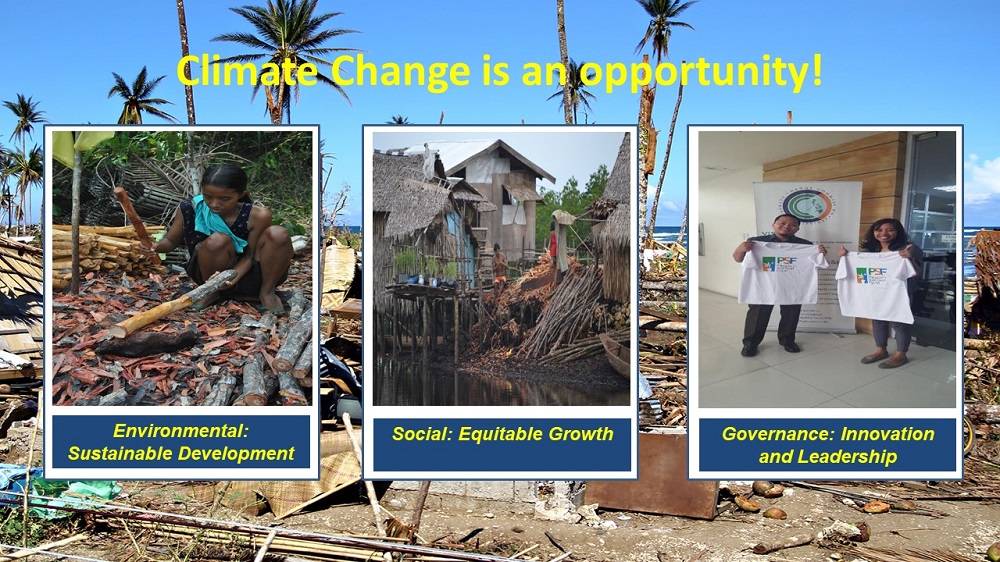
May 27, 2021 Thursday

MANILA, 28 May 2021 — In the second part of the webinar “Climate Change is Changing our Coastal and Marine Ecosystems”, the Climate Change Commission (CCC), together with RARE Philippines, underscored the need to communicate the effects of climate change to local coastal communities to help them prepare for and respond to its threats.
The webinar is organized in celebration of the Month of the Ocean and gathered hundreds of participants consisting of members of the academe and research institutions in the Philippines and abroad, government agencies and local government units, policymakers, and organizations leading community-based initiatives, to build awareness on the current and the future state of marine and coastal ecosystems in the Philippines.
“We deem it important for more Filipinos to know the effects of climate change in our local communities, particularly coastal communities, to allow them to devise the appropriate climate change adaptation and/or disaster risk reduction measures,” said CCC Commissioner Noel Antonio Gaerlan in his opening remarks.
Moderated by Ms. Angeli Joyce Barafon, Policy and Partnerships Adviser of RARE Philippines, the virtual webinar featured presentations from Dr. Julie Mae P. Dado from the Regional Climate Systems Laboratory of the Manila Observatory; Prof. Jessica D. Bercilla from the University of the Philippines-Visayas; and Vice Mayor Alfredo "JR" M. Coro II from the municipality of Del Carmen, Surigao del Norte on the current and observed climate change data in Philippine coasts, mainstreaming risk assessment in planning, and climate change data gaps and challenges from the local government perspective.
“We need to build and strengthen stakeholder engagements so that we could better understand their climate information needs. This is the reason why we come up with these projects, because of the engagements and consultations with the LGUs, so that we will know what information do they need, and therefore, we have this new or updated information, specifically for the climate extremes,” said Dr. Dado.
“We do this because of resilience, we need to be able, at this point of time, to strengthen up all human beings. Right now, we are called upon also to help and enable the capacities of our ecosystems. We need to be able to help them resist, persist, and absorb the impacts and very powerful hazards resulting from climate change,” said Prof. Bercilla.
“Local leaders may often think of climate change as a threat. But in the experience of del Carmen, we promote to look at climate change as an opportunity to build our town to be better – in terms of environmental management, developing social protection mechanisms to support equitable growth, and innovative local governance to improve the quality of public service delivery,” said Vice Mayor Coro.
The CCC encouraged the academe and scientific community to intensify collaboration on risk science and innovation and help communities prepare for localized impact assessments, as well as continue sharing and extending practical knowledge to the communities, including the youth sector on the urgency and importance of climate action.
“The time to act is now— especially when years of hard-earned development gains and lives are at risk. Together, we can make our communities resilient against disasters and climate risks,” said CCC Commissioner Rachel Herrera.
The webinar series aims to provide the public a broader understanding of the importance of science and data for informed policies on oceans. This is aligned with the overall goal of the United Nations Decade of the Ocean Science for Sustainable Development (2021-2030) with the message, “The Science We Need for the Ocean We Want”. The full webinar can be accessed through this link: https://www.facebook.
The third and last part of the online webinar will air on May 31 and focus on identifying actionable points among stakeholders to address the impacts of climate change on marine ecosystems.
For more information about the “Climate Change is Changing our Coastal and Marine Ecosystems”, visit the Facebook page of the Climate Change Commission at www.facebook.com/CCCPhl.